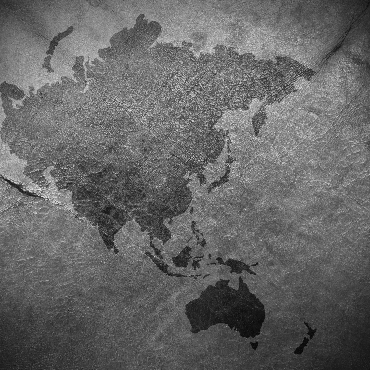ASEAN STRUGGLES WITH RESPONSE TO BURMA COUP
Top ASEAN officials are slated to travel to Burma this week to meet with leaders of the military junta there. The trip comes well over a month after the multilateral organization came to a "five-point consensus" in response to the country's military coup earlier this year: to end violence, foster dialogue, provide aid, appoint a special envoy, and send an envoy-led delegation to Burma to meet "with all parties concerned." Because ASEAN operates by consensus, all these aspirations are subject to buy-in from the Burmese junta, significantly constraining the institution’s ability to respond with agility. To wit, the Tatmadaw (Burma's military) made clear that it would engage with ASEAN "only after we achieve a certain level of security and stability." Disagreements between Indonesia and Thailand about the envoy are also hampering the association's response. While Jakarta prefers a single envoy leading ASEAN negotiations, Thailand – whose military has longstanding ties with Burma's Tatmadaw – favors multiple envoys. (Reuters, May 7, 2021; Reuters, June 1, 2021)
INDONESIA'S NEW "TANK BOAT"
In response to ongoing piracy and increasing tensions in the South China Sea, Indonesia has announced sea and weapon trials for its "tank boat." The X18 concept vehicle is functionally a catamaran optimized for speed and maneuverability and can travel up to 40 knots for upward of 600 nautical miles – though in trials the ship only traveled a distance of 170 nautical miles. If the prototype is successful, Indonesia could deploy the X18 in coastal and riverine environments for landing and attack operations. The "tank boat" is fitted with an automatic cannon, carries two heavy machine guns, and can also transport a missile launcher or unmanned aerial vehicle (UAV). For insertion or extraction missions, the X18 could carry up to 20 soldiers. (Naval News, May 28, 2019; Jane’s, May 24, 2021)
TOKYO PLANS TO SHATTER DEFENSE SPENDING CEILING
On May 19th, Japanese Defense Minister Nobuo Kishi announced that Tokyo would scrap its longstanding ceiling on defense spending. Instead of capping military expenditures at 1% of gross domestic product (GDP), as Tokyo has done since the 1990s, Kishi stipulated that Japan would "increase our defense capabilities at a radically different pace than in the past." The policy shift comes the backdrop of a Chinese military build-up and increased Chinese regional patrols, deployments, and drills, particularly in the East China Sea. The increased presence of Chinese coast guard vessels in the East China Sea and its recent Taiwan-focused operations both impact vital Japanese territorial interests – namely, defending the Senkaku Islands, which Tokyo administers, and the sovereignly-controlled Nansei Islands. (Nikkei Asia, May 20, 2021)
CHINA'S INFRASTRUCTURE OUTREACH TO THE PACIFIC ISLANDS
China's overtures to Pacific Island nations continued apace in May, with news of Beijing's offer to repair key infrastructure projects on the Kiribati island of Kanton. The offer comes two years after Kiribati switched its diplomatic recognition from Taiwan to China, and follows the Chinese Communist Party's (CCP) playbook of offering infrastructure investments in exchange for strategic favors. China has much to gain from such an exchange, because Kiribati – by virtue of its archipelago – has one of the world's largest Exclusive Economic Zones, and local defense officials have characterized Kanton specifically as "a fixed aircraft carrier." For Washington's part, Kanton's geography is of particular concern, as it is less than 2,000 miles away from the headquarters of the United States Indo-Pacific Command (USINDOPACOM) in Hawaii. (Reuters, May 5, 2021)
MANILA REJECTS BEIJING'S UNILATERAL FISHING MORATORIUM
In response to China's latest adventurism in the South China Sea, the Philippines has publicly repudiated Beijing's annual fishing ban, which runs from May 1st to August 16th. Officials in Manila are actively encouraging Filipino fishermen to continue their normal activities and, in so doing, are sounding a different note from President Rodrigo Duterte's normal conciliatory diplomacy with China. Recent events in the South China Sea seem to be pushing Manila toward a more confrontational stance, particularly at Whitsun Reef (or, to the Philippines, Julian Felipe Reef), where Chinese fishing vessels massed well within the Philippines' Exclusive Economic Zone (EEZ) before ultimately withdrawing from the area. (Newsweek, April 11, 2021; VOA News, May 14, 2021; Associated Press, March 23, 2021)
Want these sent to your inbox?
Subscribe
Indo-Pacific Monitor No. 17
Related Categories:
Democracy and Governance; Human Rights and Humanitarian Issues; International Economics and Trade; China; Japan; Southeast Asia
